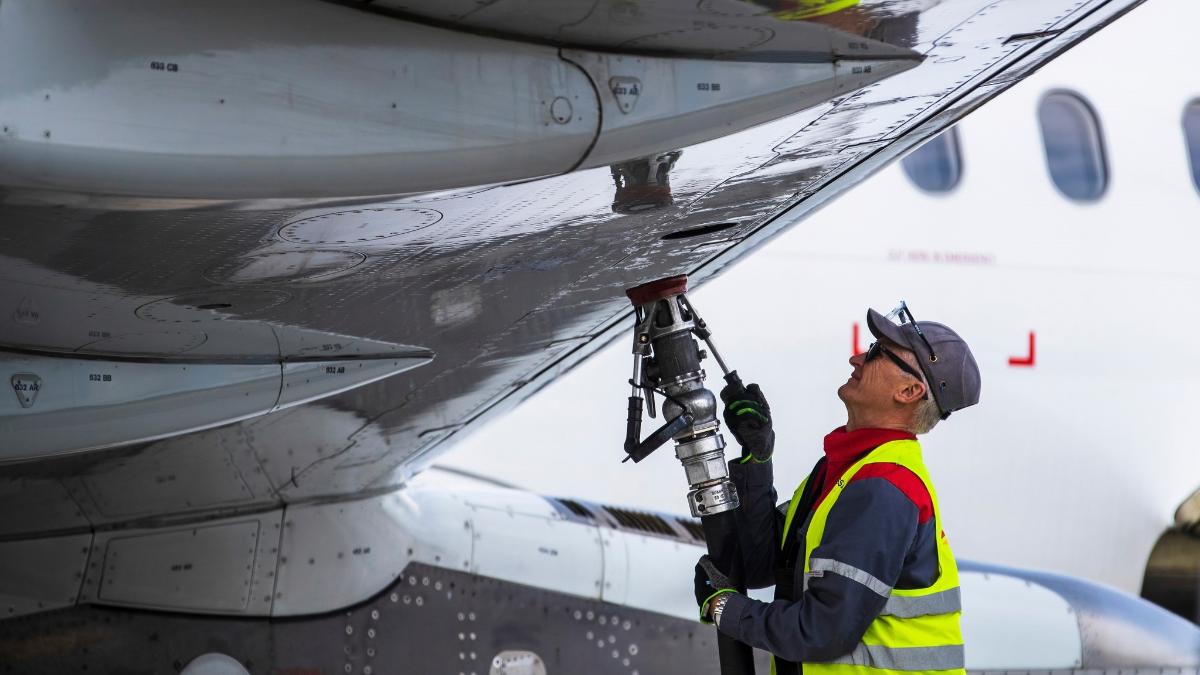Provisional agreement in the EU on the use of alternative fuels in aviation, Finland's priority for flexibility included

On 25 April 2023, the EU Member States, the European Parliament and the European Commission reached a provisional agreement on the use of renewable and low-emission fuels in aviation.
In July 2021, the European Commission submitted a proposal for a regulation on aviation fuels, the so-called ReFuel Aviation proposal, as part of the EU climate package, i.e. the Fit for 55 package. The regulation aims at increasing the use of renewable fuels in aviation and ensuring that the long-term increase in air traffic emissions will end.
The regulation includes obligations on fuel suppliers to distribute renewable fuels. The blending mandate starts from two per cent in 2025 increasing gradually. The mandate is 6 per cent in 2030, 20 per cent in 2035, 34 per cent in 2040, 42 per cent in 2045 and 70 per cent in 2050. In addition, there will be a separate obligation concerning e-fuels that will become effective as of 2030. The proposal also includes an obligation to use EU airports for refuelling.
The obligations apply to EU airports where passenger traffic is at least 800,000 passengers or where the freight traffic is higher than 100,000 tons. Based on the current passenger traffic numbers, in Finland this will apply to Helsinki-Vantaa airport.
Finland’s priority for flexibility in short-haul routes included in the agreement
Finland considers the regulation an important measure for increasing the use of renewable fuels in aviation. Finland has emphasised that the implementation measures for increasing the use of renewable aviation fuels must effectively reduce emissions from air traffic and take into account the operating environment of the air transport sector and the accessibility of Member States.
In the negotiations, Finland highlighted the importance of flexibility regarding the refuelling obligation for short-haul routes and this was included in the provisional agreement. As it takes time to refuel, the flexibility helps to avoid unnecessary refuelling and thus also operational changes on short-haul routes.
In the negotiations, Finland sought to promote the harmonisation of the definition of renewable aviation fuels so that it would correspond to the definition in the Renewable Energy Directive. Sustainable raw materials should not be unnecessarily excluded from the production of aviation fuel. Progress was also made on this objective compared to the original Commission proposal.
The Fit for 55 package includes other European Commission initiatives affecting aviation. In December 2022, the EU agreed to intensify the emissions trading scheme in air transport from 2024 onwards.
What's next?
Next, the provisional agreement will be discussed in the Permanent Representatives Committee of the Member States (Coreper). The regulation proposal will then be adopted at the meeting of the Council of Ministers and will also require formal approval by the Parliament. The regulation will take effect 20 days after its publication in the Official Journal of the European Union.
Inquiries:
Päivi Antikainen, Director of Unit, tel. +358 50 382 7101, [email protected], Twitter @PaiviAntikainen
European Parliament press release, 26 April 2023 Fit for 55: Parliament and Council reach deal on greener aviation fuels
Press release, 2 June 2022: Finland's goals well taken into account in the agreement reached by the Transport Council on the EU climate package



